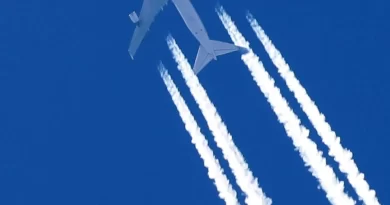Questions – and conspiracy theories – swirl around Sturgeon’s knowledge of raid
When Nicola Sturgeon thought she had finished her resignation press conference at Bute House in February, and was gathering up her speaking notes, she was asked a direct question that seemed to make her grimace.
Glenn Campbell, BBC Scotland’s political editor, asked her: “Have you been, or do you expect to be, interviewed by the police who are looking into your party’s finances.”
Sturgeon’s response, given with a tense shake of her head, was brisk: “I’m not going to discuss an ongoing police investigation. I wouldn’t do that on any issue and I’m not going to do it now.”
On the face of it, this was a normal exchange between a reporter and a political leader, but behind it was a larger question: was the ongoing Police Scotland investigation into the Scottish National party’s accounts a factor in her decision to suddenly quit as first minister and SNP leader.
She has since unequivocally denied it was. Interviewed by Beth Rigby on Sky News in March, two days after her husband Peter Murrell suddenly resigned as the party’s chief executive in a row over its membership figures, she was asked if the police inquiry influenced her decision to quit. “No, it hasn’t, no,” she said.
For some, particularly her critics inside and outside the SNP, that question has become hugely significant after her husband’s arrest at their home in Glasgow on Wednesday morning, and by the ensuing search of their house and the party’s headquarters in Edinburgh, under warrant.

Did the police hold off arresting Murrell and raiding his home until after the SNP’s leadership contest, asked former Scottish health secretary Alex Neil, a close political ally of Alex Salmond and now one of Sturgeon’s fiercest critics.
“Police Scotland should make it clear if they were asked in any way to delay this arrest and, if so, why did they do so,” he said. The Scottish Labour leader, Anas Sarwar, and Douglas Ross, the Scottish Conservative leader, echoed him.
On social media, conspiracy theories proliferated: some said the police arrived at their home only after Sturgeon had left. This was untrue. Murrell was arrested by plainclothes officers at 7.45am, about 25 minutes before Sturgeon left. Perhaps the detectives had told her a large search team was about to arrive, a short while later.
Within hours, both Police Scotland and Sturgeon denied any prior discussions had taken place, thus dismissing the suggestion the raid was timed to avoid disrupting Humza Yousaf’s chances of winning; Yousaf was Sturgeon’s favoured candidate – a factor which animated her opponents. Murrell was later released by police without charge, pending further investigation.
after newsletter promotion
The manner of the police raid suggests it was far from likely to have been arranged in advance. Officers erected tents across the semi-detached house’s front door; cordoned off the pavement with police tape and searched the garden, brandishing spades from the shed in full view of TV cameras.
Police vans were parked along the kerb, with six uniformed officers on guard outside. Those images were seen across the world.
If Sturgeon and Murrell had made any advance arrangements, it seems far more plausible Murrell would have volunteered to attend a police station. They may have anticipated that; several other SNP staff had already been interviewed, without being under caution.
If the police needed to search their home for fresh evidence, it seems implausible they would have notified the couple in advance. And Sturgeon, who has enjoyed repeated media appearances since she said she would quit, has shown no sign she anticipated her husband’s arrest.
This article has been archived for your research. The original version from The Guardian can be found here.


